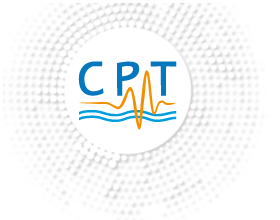Accueil > Séminaires > Séminaires Dynamique Quantique et Classique
Séminaires Dynamique Quantique et Classique
Séminaire organisé par les deux équipes du groupe Systèmes dynamiques classiques et quantiques .
Responsables :
Annalisa PANATI
et
Benjamin ALVAREZ
Jour dédié :
le mercredi à 14h00
Lieu :
CPT, amphithéâtre du 5ème étage
Abonnement iCal
,
Séminaires passés
Prochain Séminaires Dynamique Quantique et Classique
Mercredi 14 Mai 2025 –
Michael Sigal, Université de Toronto
Title : On Propagation of Information in Open Quantum Systems
Abstract : In this talk I report on some recent results on evolution of information in open quantum few-body systems. Under Markovian assumption, such systems are described by the von Neumann-Lindblad equation. I present results on the existence of an effective light cone, Lieb-Robinson type bounds, propagation of correlations and states, and on quantum messaging. The proofs are based on an analytic deformation approach going back to works of JM Combes with several collaborators. If time permits I will also discuss some extensions to many-body (finite density) systems.
The talk based on a joint work with Xiaoxu Wu, Jérémy Faupin, Marius Lemm and Jingxuan Zhang.
Location et horaire : CPT, AMPHI 5 à 16H
Séminaires à venir
Mercredi 12 Février –
RACHID ZAROUF, Université de Aix Marseille
Titre : CONTRE-EXEMPLES RÉFUTANT LA CONJECTURE DE SCHÄFFER,
PUISSANCES D’UN AUTOMORPHISME DU DISQUE ET
ASYMPTOTIQUE DES POLYNÔMES DE JACOBI
Résumé : Le résumé est disponible en pdf via ce lien.
Location et horaire : CPT, AMPHI 5 à 14H
Mercredi 19 Février 2025 –
Hiroshi Isozaki, Ritsumeikan University
Titre : Uniqueness of scattering solutions to partial differential equations
Résumé : In the study of wave scattering, a crucial role is played by the Sommerfeld radiation condition and the Rellich type uniqueness theorem. The former describes the asymptotic form of scattering solutions to the Helmholz type equation, and the latter determines its sharp decay rate. They ensure the non-existence of eigenvalues embedded in the continuous spectrum, what is more, they turn out to be a key step toward the inverse scattering. We will discuss these theorems in two problems. The first issue, a joint work with Matti Lassas, is concerned with a class of general Riemannian manifolds, for which we prove the Rellich type theorem in an abstract setting and solve the inverse scattering problem. The second issue, a joint work with Mitsuteru Kadowaki and Michiyuki Watanabe, deals with the elastic equation in a perturbed 3-dim. half space, for which we introduce the radiation condition and prove the uniqueness of scatteirng solutions.
Location et horaire : CPT, AMPHI 5, 14H00
Mercredi 26 Février 2025-
Nicolas Clozeau, IMATH Toulon
Title :
TBA
Abstract: TBA
Location et horaire : Toulon, Bâtiment Z1, salle Z1.018, 13h30.
Mercredi 14 Mai 2025 –
Michael Sigal, Université de Toronto
Title : On Propagation of Information in Open Quantum Systems
Abstract : In this talk I report on some recent results on evolution of information in open quantum few-body systems. Under Markovian assumption, such systems are described by the von Neumann-Lindblad equation. I present results on the existence of an effective light cone, Lieb-Robinson type bounds, propagation of correlations and states, and on quantum messaging. The proofs are based on an analytic deformation approach going back to works of JM Combes with several collaborators. If time permits I will also discuss some extensions to many-body (finite density) systems.
The talk based on a joint work with Xiaoxu Wu, Jérémy Faupin, Marius Lemm and Jingxuan Zhang.
Location et horaire : CPT, AMPHI 5 à 16H
Liste des séminaires
